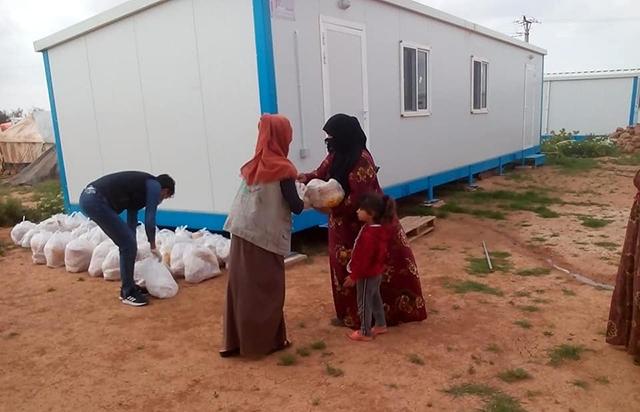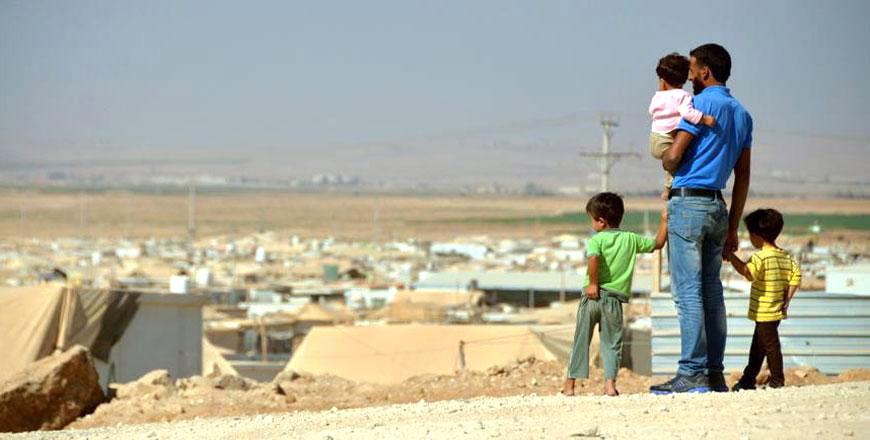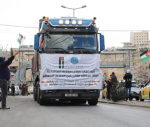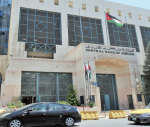You are here
Over 130,000 individuals benefitted from JONAF’s COVID-19 response plan
By JT - Jan 20,2021 - Last updated at Jan 21,2021
AMMAN — After the success of the first phase of Jordan NGOs Forum’s (JONAF) response plan, initiated at the start of the COVID-19 pandemic, the coalition, in which 40 institutions from across Jordan are members, launched the second phase of its plan in mid-November 2020.
In view of the exacerbating health, economic and social consequences of the second wave of the virus, JONAF decided to extend the second phase of the crisis response plan until mid-April 2021, according to a statement from the Arab Renaissance for Democracy and Development (ARDD).
Targeted are the most vulnerable groups of society: Children, women, day labourers, migrants, refugees, the elderly and people with special needs, This second phase is multi-faceted, as one aspect is offering protection and prevention in relation to the repercussions of the pandemic, and entails conducting periodic assessments of the needs of the most affected groups, working closely with the government in response frameworks, and benefitting from the varied experience of the coalition members.
Several meetings were held, through which members of the civil society and the government exchanged experience. Two reports were presented, on the localisation of humanitarian work and JONAF’s performance in response to the pandemic, contributing to them were government agencies, and local civil society and international representatives, and a policy brief was launched on women’s indebtedness in light of the pandemic, said the statement.
Building on the efforts of the Harat Al Aouna (Supportive Neighbourhoods) initiative, and harnessing the youth energy in times of crises, developing and highlighting their capabilities, and enhancing their participation in their communities, JONAF worked on developing the work of the Aoun Youth Committee within Al Nahda Youth network and provided training, through JONAF member, the Jordanian Paramedic Society, for 90 young men and women in Amman, Mafraq, Tafileh, and Zarqa on crisis management and humanitarian action protection principles, advanced first aid and protection from infection.
JONAF members also participated in the preparation of a rapid assessment of needs, by sampling 525 respondents throughout the Kingdom, with the aim of identifying basic needs resulting from the pandemic, and which are related to livelihood, education, health and medical services, said the statement.
A total of 59 per cent of those surveyed said that they were not working and receive national aid, while 41 per cent of working respondents said that their income had been negatively affected due to the pandemic and 20 per cent of those who used to work had lost their jobs.
By order of priority, food needs were the highest at 61 per cent, followed by other means of livelihood at 55 per cent, healthcare at 50 per cent, and education at 37 per cent, read the statement.
The needs assessment also showed the deficiencies in providing for the main needs and services. Food and medicine were the needs most affected by the crisis, at 57 per cent and 39 per cent, respectively.
The crisis has also affected the availability of hygiene products at 26 per cent, Internet services at 25 per cent, water at 19 per cent, and vaccines in general at 17 per cent.
Educational services were the most affected at 78 per cent, followed by medical services at 69 per cent, and social services at 68 per cent, the statement said.
Seventy-eight per cent of children and 74 per cent of teachers faced problems accessing the Internet and lacked needed online learning devices; at the same time, 73 per cent of children reported difficulty in concentrating and other digital learning difficulties.
JONAF continues to provide legal, social protection and sectoral services, in addition to providing emergency lines and referral mechanisms between organisations and concerned authorities to ensure that health needs and secure livelihoods are made available to all segments of Jordanian society. Its services were offered to more than 130,000 Kingdom beneficiaries in 2020, according to the statement.
Related Articles
AMMAN — As part of its endeavours to lead the efforts exerted in humanitarian response and development in Jordan, the Jordanian NGOs Forum (
AMMAN — In efforts to activate the role of local organisations in supporting the government, the Jordanian National NGOs Forum (JONAF), cons
AMMAN — The Jordan INGO Forum (JIF) and the Jordanian NGOs Forum (JONAF) have launched the “June 2020 Walk the Talk” report on progress and
















